New Yorker Adler began his career in 1994 with a single order from Barneys, the luxury department store. He can now lay claim to having created numerous iconic pieces, 20 stores, four books, endless interiors projects (not to mention the ‘real’ Barbie Dream House in Florida) and one reality TV show (Top Design). He’s the darling of home accessories, producing everything from rugs and pillows to lighting and furniture. We found out what makes him tick.
HOW DID YOUR DESIGN CAREER BEGIN?
I was a teen potter, but it was just my passion – it didn’t occur to me that I could make a career out of it. Luckily, when I got out of university I proved to be unemployable. I was trying to work as a talent agent, but I kept getting fired. So I joined a pottery studio and taught night classes in exchange for studio time. About six months later, I was still out of work and my parents were freaking out, so I called Barneys and asked if someone would come and have a look at my pots. This led to my first order.
HOW WOULD YOU SUM UP YOUR LOOK?
My designs are personal, idiosyncratic and a little irreverent – but also luxurious. I’m focused on making impeccably made, beautiful stuff that has a cheeky spirit. And it hasto be chic. My mantra is style, craft and joy.
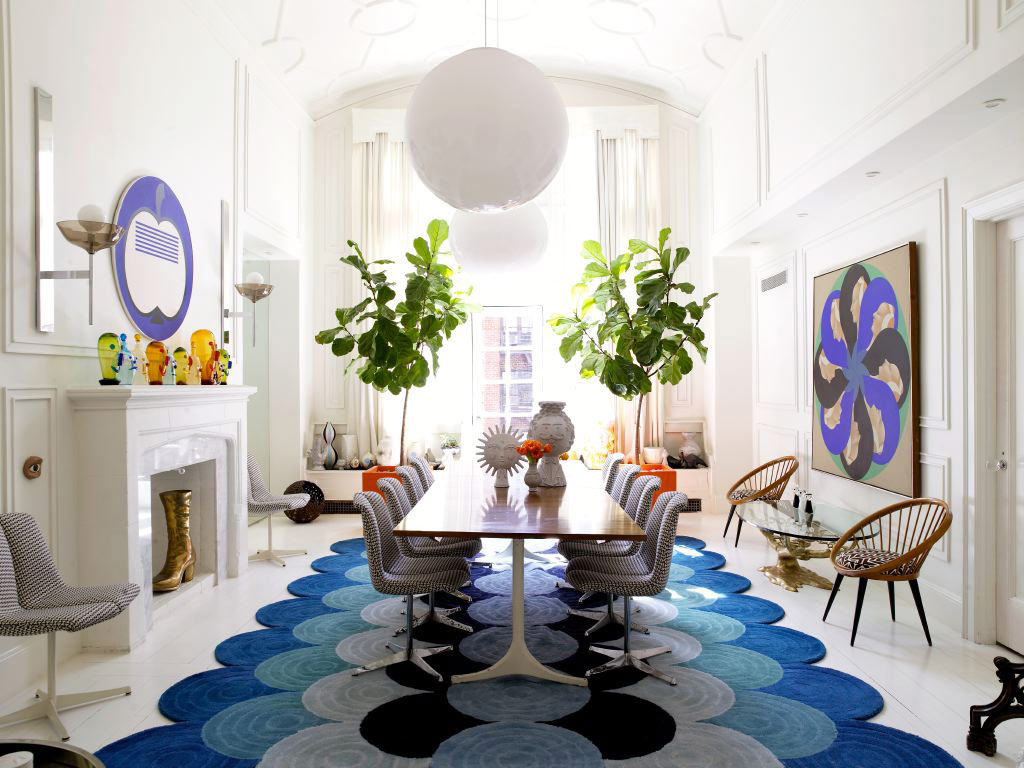
IS YOUR LIGHT_HEARTED LOOK HARD TO MAINTAIN?
Impossible! To get stuff that looks effortless takes an unbelievable amount of effort. It needs to look uncovered, rather than created. That requires so much work.
The Livingetc newsletters are your inside source for what’s shaping interiors now - and what’s next. Discover trend forecasts, smart style ideas, and curated shopping inspiration that brings design to life. Subscribe today and stay ahead of the curve.
HOW DO YOU PUT THAT IN A BRIEF TO YOUR DESIGN TEAM?
I don’t need to – my office is an incredibly fun place that’s infused with this creative spirit. I call it The Fantasy Factory, which is a cheeky nod to Andy Warhol’s Factory plus a dash of Willy Wonka. Over the door is the sign saying ‘Enter Our Groovy World’. There are 10 dogs in the office on any given day. I’m actually having an affair with Belfanges, a long-haired Chihuahua. She’s my secret office romance – I don’t tell my own dog Liberace about it.
WHAT'S YOUR FAVOURITE DESIGN?
Well, I love my pot with the faces on it and my brassware. In fact, I probably shouldn’t say this, but I actually love everything I make. I once went to a Vivienne Westwood talk, and she was showing slides of her stuff, stopping at every picture to say, ‘Isn’t this great!’ Most people were taken aback, but I totally got it.
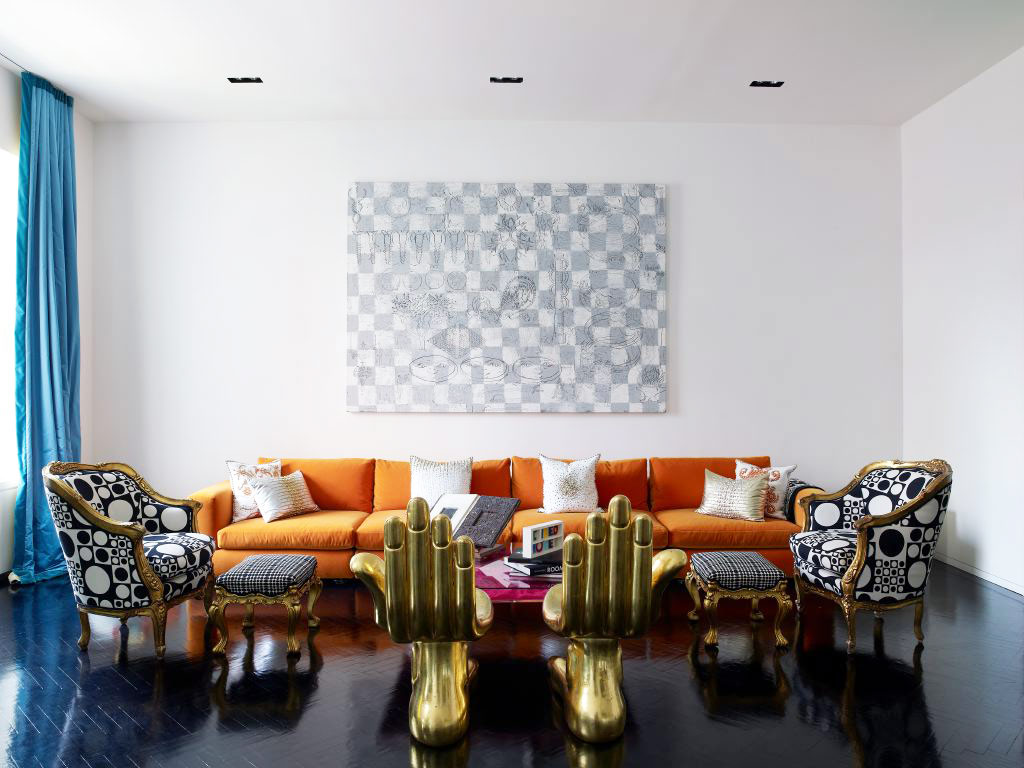
CAN YOU NAME ANY KEY DESIGN INFLUENCES?
My holy trinity is three mid-century designers: Bonnie Cashin, Alexander Girard and Bjørn Wiinblad. They inspire me because they all created work that’s totally idiosyncratic, full of cheeky optimism and yet unimpeachably chic. I’m also a huge fan of David Hicks – I have never said no to a David Hicks rug.
WHAT ABOUT CONTEMPORARIES?
Sir Paul Smith. He is such a sweet person and an inspiring example of how one can be wildly creative and wildly unpretentious at the same time
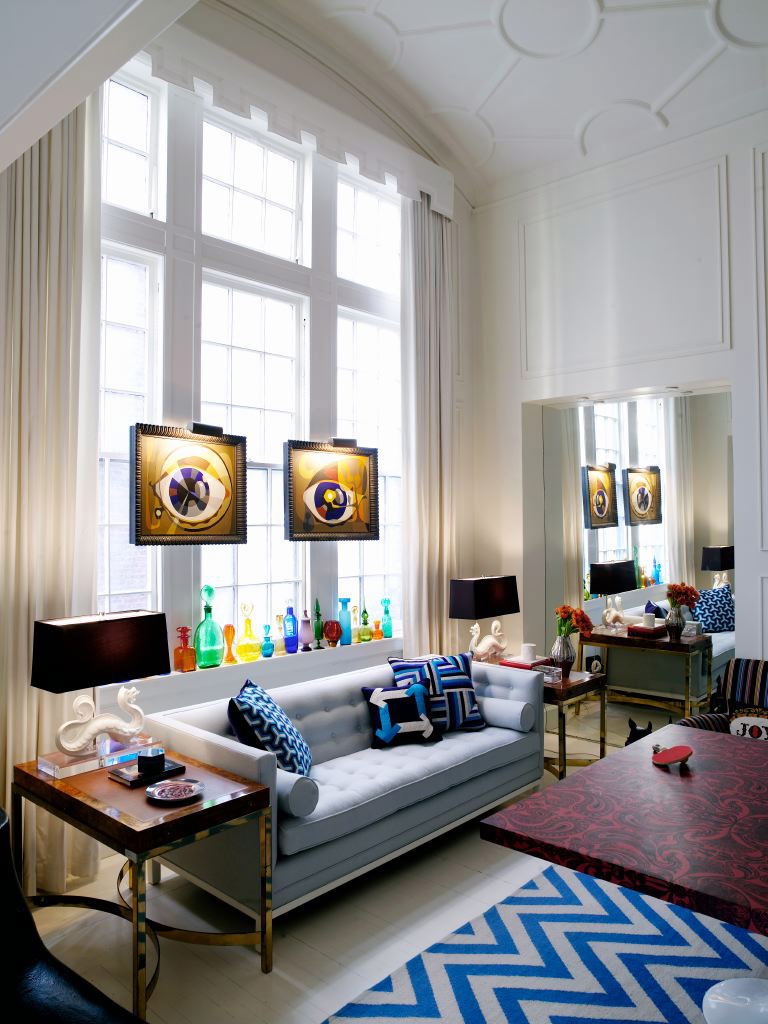
YOU INSPIRE PEOPLE WITH YOUR USE OF COLOUR. ANY ADVICE?
People seem to think that I love colour in abundance, but I’m actually pretty restrained and rigid. I tend to use a couple of basic background colours, maybe white and grey, and then add bright punches. My philosophy is to use strategic strikes of colour in a neutral space.
ARE YOU INTO ANY PARTICULAR SHADES AT THE MOMENT?
Lately I’m obsessed with grey as a backdrop for electric shots of colour. And purple is wending its way into my world in a sneaky way. Everything seems to be purple, purple, purple!
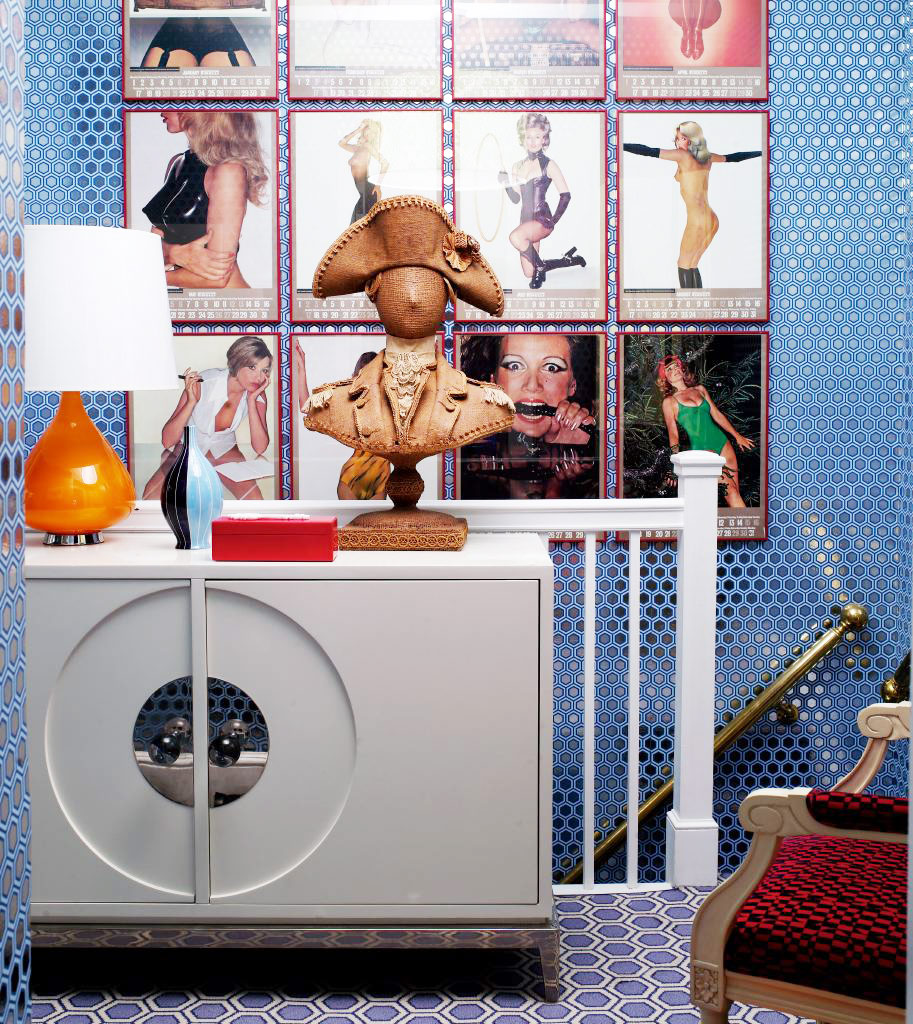
DO YOU FOLLOW TRENDS?
Not at all. There are all these fancy forecasters that charge hundreds of billions of dollars for their supposedly insider knowledge. I’m lucky that they often cite my stuff, but I don’t subscribe to anything like that. I try to remain insular – this is a very loud and confusing world, and it can be challenging if you look at what others are doing too much.
WHAT'S YOUR HOME LIKE?
My New York pad is eccentric, eclectic, bright and personal. And fun! My husband Simon Doonan is now a writer, but he used to be the creative director of Barneys, so we are both open-minded, visual thrill seekers. Our apartment reflects that.
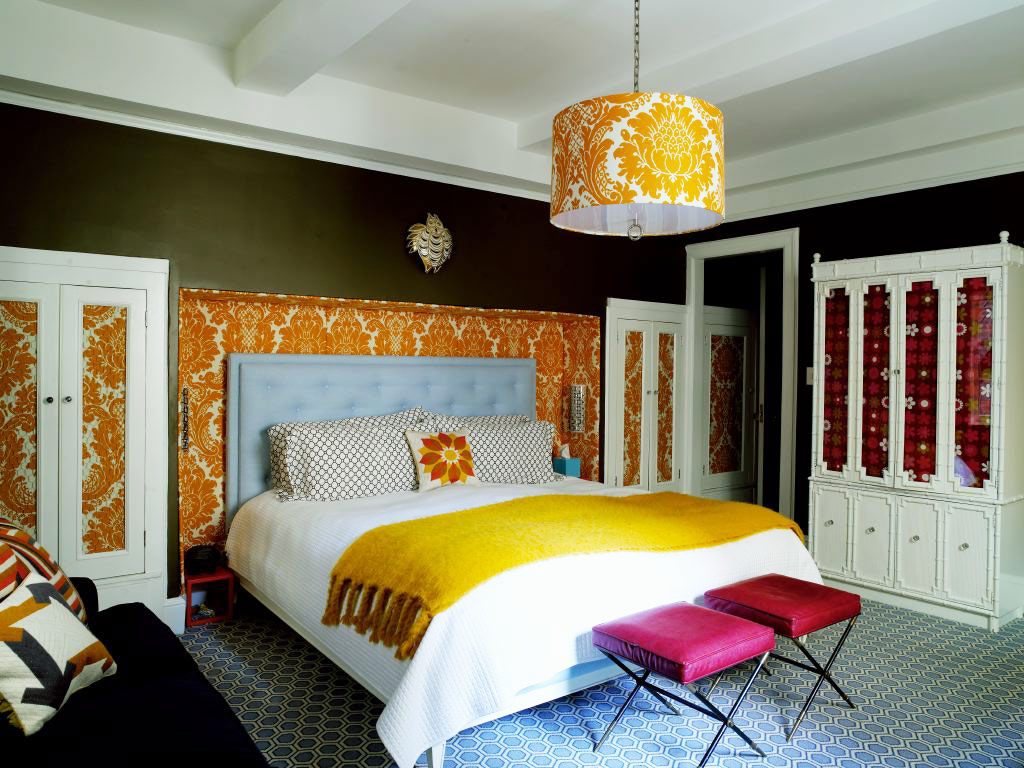
HOW OFTEN DO YOU UPDATE IT?
Constantly. It’s like a laboratory for my work. The walls usually stay white. It makes a great, clean base – a bit like a lemon sorbet for the palette.
WHAT'S THE SECRET TO A WELL-DESIGNED HOME?
Lighting is the unsung hero of design. It needs to be dimmable and come from lots of different sources. Every room could use another lamp. And every room should have a squishy armchair to read in. My real nugget of advice is to make your spaces bold and memorable – when you’re about to kick the bucket, you want to remember your Persimmon breakfast room and not an endless sea of beige.
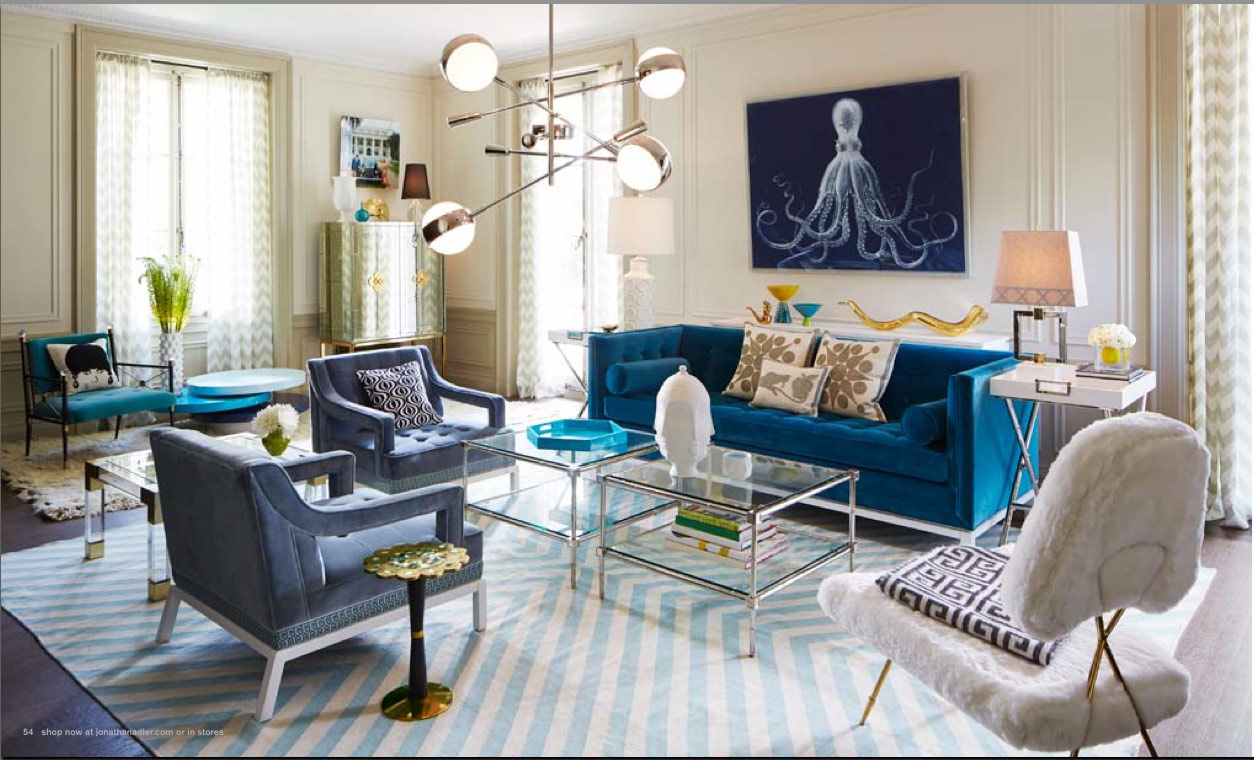
YOU'RE NOW A HOUSEHOLD NAME – WAS IT EASY TO CRACK INTO THE BUSINESS?
No, it was very difficult. I had no idea what I was doing – I didn’t even know what an invoice was. The flip side of that was that I was totally focused on making groovy stuff. I was doing backbreaking labour for seven days a week, 12 hours a day. But even so I was totally broke. I was almost 30 and only making $8,000 a year. I realised that the only way I was going to grow financially and creatively was if somebody else made my stuff for me. I found a tiny workshop in Peru through a non-profit organisation called Aid to Artisans, which connects American designers with craftspeople in the developing world.
WHEN DID YOU DECIDE TO BRANCH OUT FROM POTS?
Once I was freed up from potting, I had the headspace to think. At the time, my pots were very mod, stripy and colourful. I realised my ethos was chic design with a joyful spirit and that this could be applied to different things.
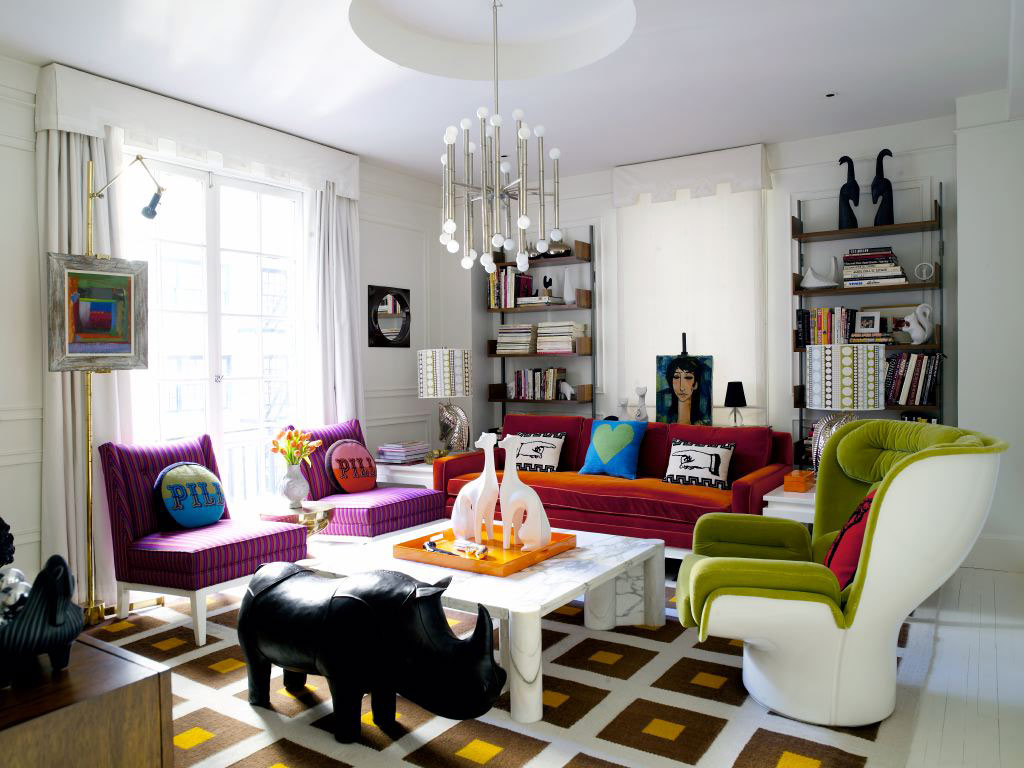
AND HOW ABOUT INTERIOR DESIGN?
I have always operated from a position of panic and desperation – the spirit ignited from being unemployable, then making hardly any money, has never left me. So when about 10 years ago a friend asked if I wanted to decorate his home, I said yes, because I say yes to everything.
CAN YOU NAME A HIGH POINT OF YOUR CAREER?
When I opened my first shop in 1998. I went from being a guy who made pots to being an actual place. When I first opened, I overheard somebody in the store say ‘I’m just at Jonathan Adler’ on the phone and I realised that by having a shop you suddenly become this thing that someone can casually mention: you exist.
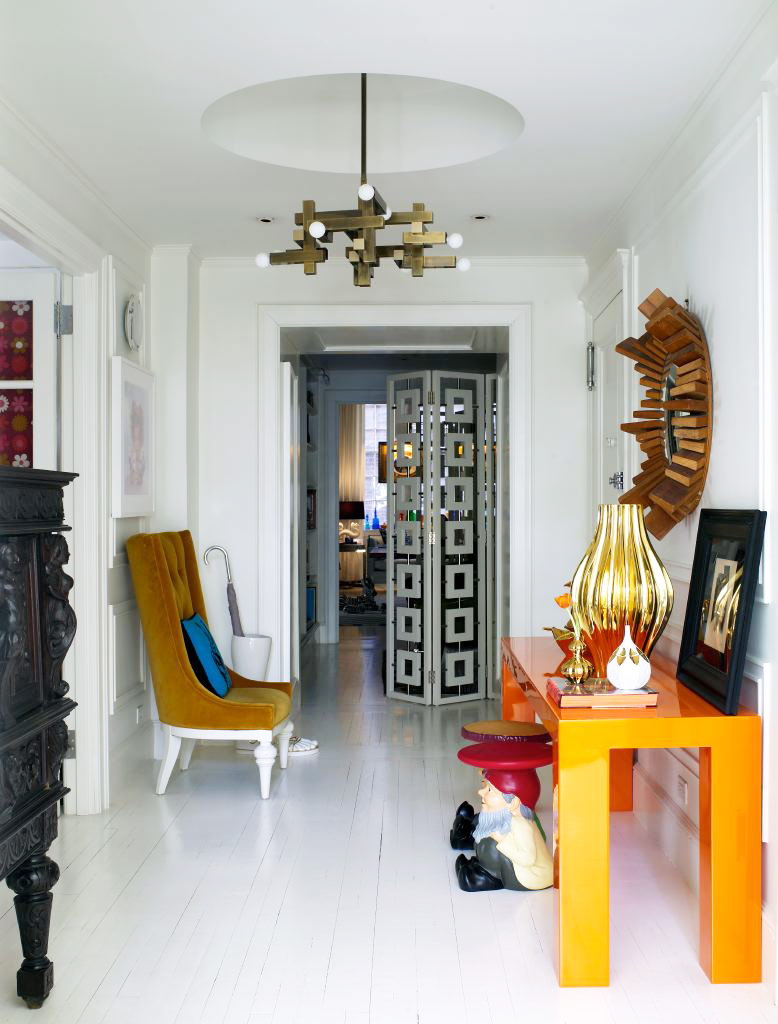
WHAT ABOUT A LOW POINT?
I have been through hell and really learned the hard way, but for me it was helpful to bumble along and screw up. There have been so many disasters I don’t know where to begin! There was the time when I got my first huge shipment from Peru, 10,000 pots. They arrived, but the customs inspector said that none of them had ‘Made in Peru’ stickers on. I had to rent a warehouse and spend the next week opening up every pot and putting on stickers.
WHAT OTHER ATTRIBUTES DO YOU NEED FOR SUCCESS IN BUSINESS?
I’d say unemployability and I sincerely mean that. I sound like I’m being glib, but I’m not. I had to make this work – I was un-em-ployable! If I didn’t, I was going to be on the street. So patience and unemployability are the two things you need.
Browse Adler’s products and find out more on his website uk.jonathanadler.com.
The homes media brand for early adopters, Livingetc shines a spotlight on the now and the next in design, obsessively covering interior trends, color advice, stylish homeware and modern homes. Celebrating the intersection between fashion and interiors. it's the brand that makes and breaks trends and it draws on its network on leading international luminaries to bring you the very best insight and ideas.